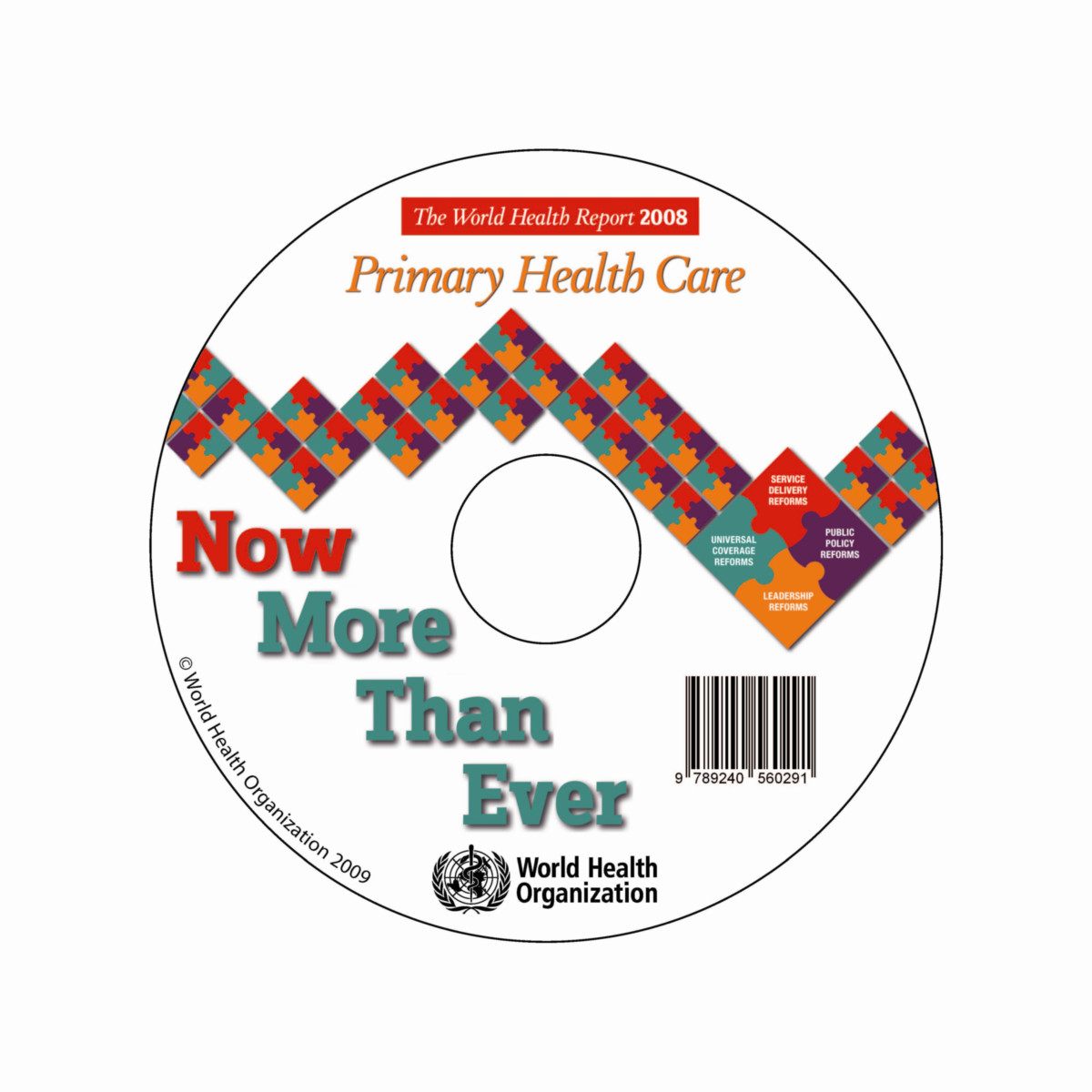The World Health Report 2008
Primary Health Care Now More Than Ever
- Publisher
World Health Organization - Published
18th December 2008 - ISBN 9789241563734
- Language English
- Pages 139 pp.
- Size 8.25" x 11.75"
As nations seek to strengthen their health systems, they are increasingly looking to primary health care (PHC) to provide a clear and comprehensive sense of direction. The World Health Report 2008 analyzes how primary health care reforms, that embody the principles of universal access, equity and social justice, are an essential response to the health challenges of a rapidly changing world and the growing expectations of countries and their citizens for health and health care.
The Report identifies four interlocking sets of PHC reforms that aim to: achieve universal access and social protection, so as to improve health equity; re-organize service delivery around people’s needs an expectations; secure healthier communities through better public policies; and remodel leadership for health around more effective government and the active participation of key stakeholders.
By capitalizing on this momentum, investment in primary health care reforms can transform health systems and improve the health of individuals, families and communities everywhere. For everyone interested in how progress in health can be made in the 21st century, The World Health Report 2008 is indispensable reading.
"As nations seek to strengthen their health systems, they are increasingly looking to primary health care (PHC) to provide a clear and comprehensive sense of direction. The World Health Report 2008 analyzes how primary health reforms, the embodiment of the principles of universal access, equity, and social justice, are an essential response to the health challenges of a rapidly changing world and the growing expectations of countries and their citizens for health and health care. The report identifies four interlocking sets of PHC and aims to achieve universal access and social protection, so as to improve health equity, re-organize service delivery around people's needs and expectations, secure healthier communities through better public policies, remodel leadership for health around more effective government, and the active participation of key stakeholders. The report comes 30 years after the Alma-Ata Conference of 1978 on PHC, which agreed to tackle the politically, socially, and economically unacceptable health inequalities in all countries. Much has been accomplished in this regard, particularly in health care for children. Yet progress in health has been deeply and unacceptably unequal, with many disadvantaged populations increasingly lagging behind or even losing ground. In the face of this, and the changing nature of health problems, business as usual is not a viable option. Many systems seem to be drifting one short solution to another, increasing fragmentation and without a strong sense of preparedness for what lies ahead. How to meet the challenges facing PHC is the subject of this report."
- Abstracts of Public Administration, Development and Environment
1) The challenges of a changing world; 2) Advancing and sustaining universal coverage; 3) Primary Care: putting people first; 4) Public policies for the public's health; 5) Leadership and effective government; 6) The way forward
World Health Organization
World Health Organization is a Specialized Agency of the United Nations, charged to act as the world's directing and coordinating authority on questions of human health. It is responsible for providing leadership on global health matters, shaping the health research agenda, setting norms and standards, articulating evidence-based policy options, providing technical support to countries, and monitoring and assessing health trends.


